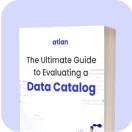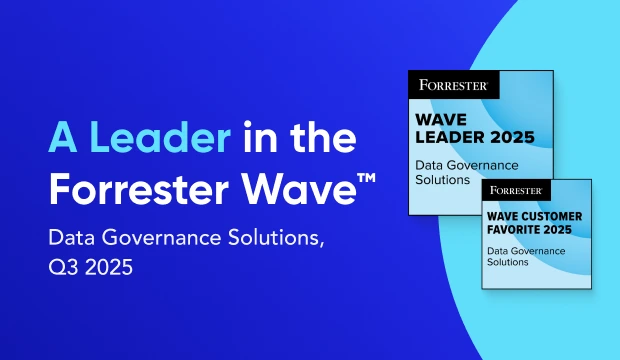How to Achieve Data Compliance for Synapse Analytics?

Share this article
Explore the critical importance of data compliance in Azure Synapse: Navigate the complexities of regulatory standards and data security to maintain customer trust and ensure seamless global operation
About Data Compliance for Synapse Analytics #
Data compliance refers to the adherence to relevant laws, policies, and regulations concerning the collection, storage, processing, and management of data. It involves ensuring that data is handled in a way that complies with legal and ethical standards, such as data protection laws, privacy laws, and industry-specific regulations.
Data compliance is crucial for businesses and organizations as non-compliance can result in legal penalties, financial losses, and damage to reputation. It also involves implementing appropriate security measures to protect data from unauthorized access, breaches, and other potential risks. Furthermore, data compliance includes the rights of individuals to access, correct, and delete their data. Therefore, organizations need to have proper data management strategies and systems in place to ensure data compliance.
Synapse Analytics, formerly known as SQL Data Warehouse, is a cloud-based integrated analytics service provided by Microsoft Azure. It brings together big data and data warehousing into a single, powerful service offering real-time analytics.
It provides a unified experience to ingest, prepare, manage, and serve data for immediate business intelligence and machine learning needs. Synapse Analytics offers a limitless analytics service that is designed to bring the two worlds of big data and data warehousing into a unified, enterprise-grade, powerful platform.
It allows users to query data on their terms, using either serverless or provisioned resources, at scale. It integrates with various data visualization tools and languages, including Power BI and T-SQL. It also supports the use of AI and machine learning for more advanced data analysis.
Table of contents #
- About Data Compliance for Synapse Analytics
- The Essential Role of Data Compliance in Azure Synapse Analytics
- Evaluating Best Tools for Data Compliance in Azure Synapse
- Azure Synapse Analytics Data compliance: Related reads
The Essential Role of Data Compliance in Azure Synapse Analytics #
Without the use case of data compliance, Synapse Analytics becomes less useful as it is designed to handle large volumes of data in a secure and compliant manner.
If data compliance is not implemented, the risk of data breaches increases, potentially leading to legal penalties and reputational damage. Furthermore, the ability to effectively manage and analyze data may be compromised, reducing the overall effectiveness of the technology.
In the absence of stringent data compliance measures, Synapse Analytics’ utility can be significantly diminished. The platform is designed to provide secure data solutions, and without proper compliance protocols, this foundational aspect is undermined.
The risk of data breaches and unauthorized access to sensitive information escalates in such scenarios. Data breaches can have far-reaching consequences, including legal penalties, financial losses, and severe reputational damage.
These repercussions are particularly acute given the stringent regulatory environment governing data privacy, such as GDPR in the European Union and CCPA in California.
Moreover, data compliance is not just about avoiding legal ramifications; it is also integral to maintaining the integrity and reliability of the data within Synapse Analytics.
Non-compliance can lead to poor data management practices, resulting in data inconsistencies, inaccuracies, and inefficiencies. This, in turn, can severely impact the effectiveness of data analysis and business intelligence derived from the platform. T
he insights and decisions based on non-compliant or poorly managed data are likely to be flawed, leading to misguided business strategies and operational inefficiencies.
Effective data compliance within Synapse Analytics also facilitates better data governance and quality control, ensuring that data is accurate, consistent, and usable. This is crucial for businesses that rely on data-driven decision-making.
Compliance frameworks help in establishing clear data lineage, audit trails, and usage policies, which are essential for trustworthy analytics and reporting.
Evaluating Best Tools for Data Compliance in Azure Synapse: #
- Regulatory Compliance: Ensure the tool aligns with key regulations like GDPR, HIPAA, CCPA, and others relevant to your industry.
- Integration with Azure Synapse: The tool should seamlessly integrate with Azure Synapse, supporting its data structures and processing capabilities.
- Data Security Features: Look for robust security features such as encryption, access controls, and monitoring capabilities to protect sensitive data.
- Audit and Reporting Capabilities: Essential for tracking compliance, the tool should offer comprehensive audit trails and easy reporting functionalities.
- Scalability and Performance: The tool must handle the scale of data processed in Azure Synapse without compromising performance.
- User-Friendly Interface: An intuitive interface is crucial for efficient use by compliance and data teams.
Common Oversights in Evaluation: #
- Underestimating Training Needs: Overlooking the need for training can hinder the effective use of the tool.
- Ignoring the Total Cost of Ownership: Consider not just the purchase price, but also the costs of integration, maintenance, and updates.
Making a Clear Business Case: #
- Emphasize Risk Mitigation: Highlight how the tool minimizes risks of data breaches and non-compliance penalties.
- Demonstrate ROI: Show how the tool will streamline compliance processes, reduce manual efforts, and prevent costly legal issues.
- Align with Business Objectives: Connect the tool’s capabilities with strategic business goals like maintaining customer trust and upholding brand integrity.
Having the Right Systems in Place: #
- Comprehensive Data Management: Systems should support efficient data categorization, storage, and retrieval aligned with compliance needs.
- Continuous Monitoring and Updates: Implement ongoing monitoring systems to ensure continuous compliance amidst changing regulations.
- Employee Training and Awareness: Regular training and awareness programs are crucial to ensure staff understand compliance requirements and the importance of the tools in place.
Azure Synapse Analytics Data compliance: Related reads #
- Microsoft Azure Synapse Analytics Connectivity
- How to crawl Microsoft Azure Synapse Analytics
- How to set up Microsoft Azure Synapse Analytics
- Microsoft Fabric vs. Azure Synapse Analytics: Architecture, Features, Migration Possibilities, FAQs
- Reasons Why Data Compliance is Non-Negotiable
- Data Governance and Compliance: Act of Checks & Balances
- What is Data Governance? Its Importance, Principles & How to Get Started?
- Data Quality Dimensions: Do They Matter in 2023 & Beyond?
Share this article











